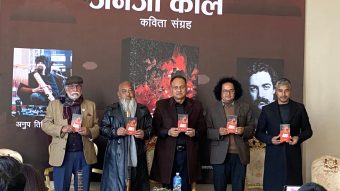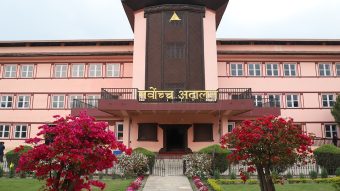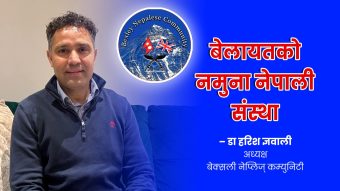Ambassador Paudyal Calls for Unified Action to End Caste-Based Discrimination



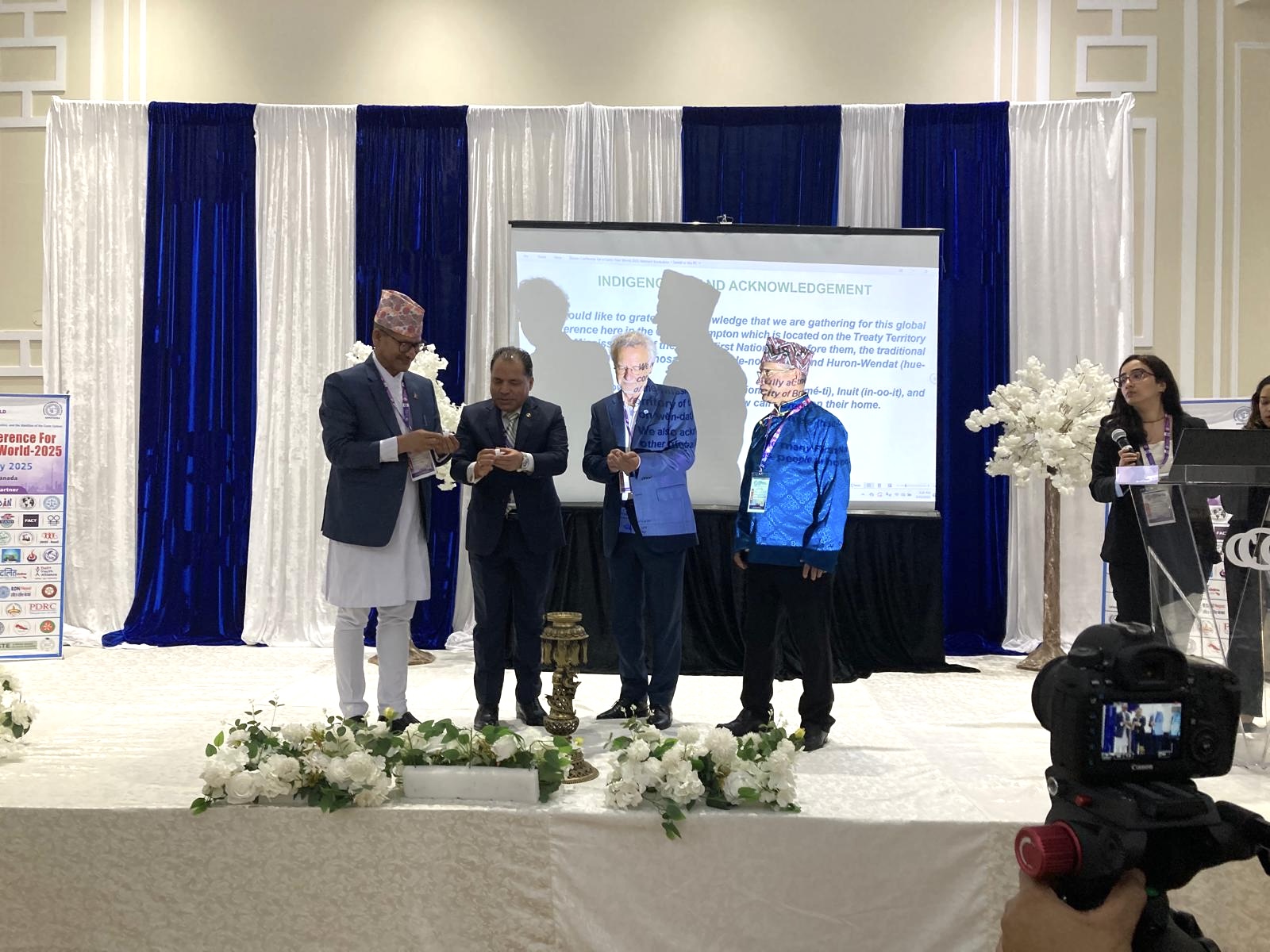
Toronto – The Ambassador of Nepal to Canada, Bharat Raj Paudyal, has emphasised the need for a multi-pronged approach to address caste-based discrimination.
Speaking at the inaugural ceremony of the Global Conference for a Caste-Free World, organised by Sahayatra International and other organisations, Ambassador Paudyal outlined five key action points to tackle the deeply rooted issue of caste-based discrimination prevalent in many countries.
“First, an inclusive education system should instil universal values of dignity, respect, and equality from an early age, challenging entrenched prejudices. Second, grassroots activism and collective efforts must amplify voices that dismantle caste-based hierarchies and foster mutual respect. Third, legal frameworks must be rigorously enforced to hold violators accountable, while integrating robust social programmes to ensure equitable opportunities for all,” said Ambassador Paudyal. He added, “Economic empowerment through access to jobs and resources can break systemic inequalities that perpetuate caste biases. Finally, community dialogues and awareness campaigns help address deep-seated stigmas, while political representation enables marginalised groups to participate in shaping policies that reflect their needs and aspirations.”
Ambassador Paudyal stated that Nepal envisions a society where individuals are valued for their abilities and contributions rather than constrained by discriminatory labels. To realise this vision, he said, sustained investment in education, advocacy, and policy reform is crucial.
He highlighted the importance of engaging youth in dialogue and discourse, which he said is vital in challenging stereotypes and ultimately eliminating caste-based discrimination.
“Nepal stands in solidarity with all efforts to achieve a caste-free world—a world of dignity, equality, and shared humanity. Together, we can build a future where respect for one another reigns supreme,” he added.
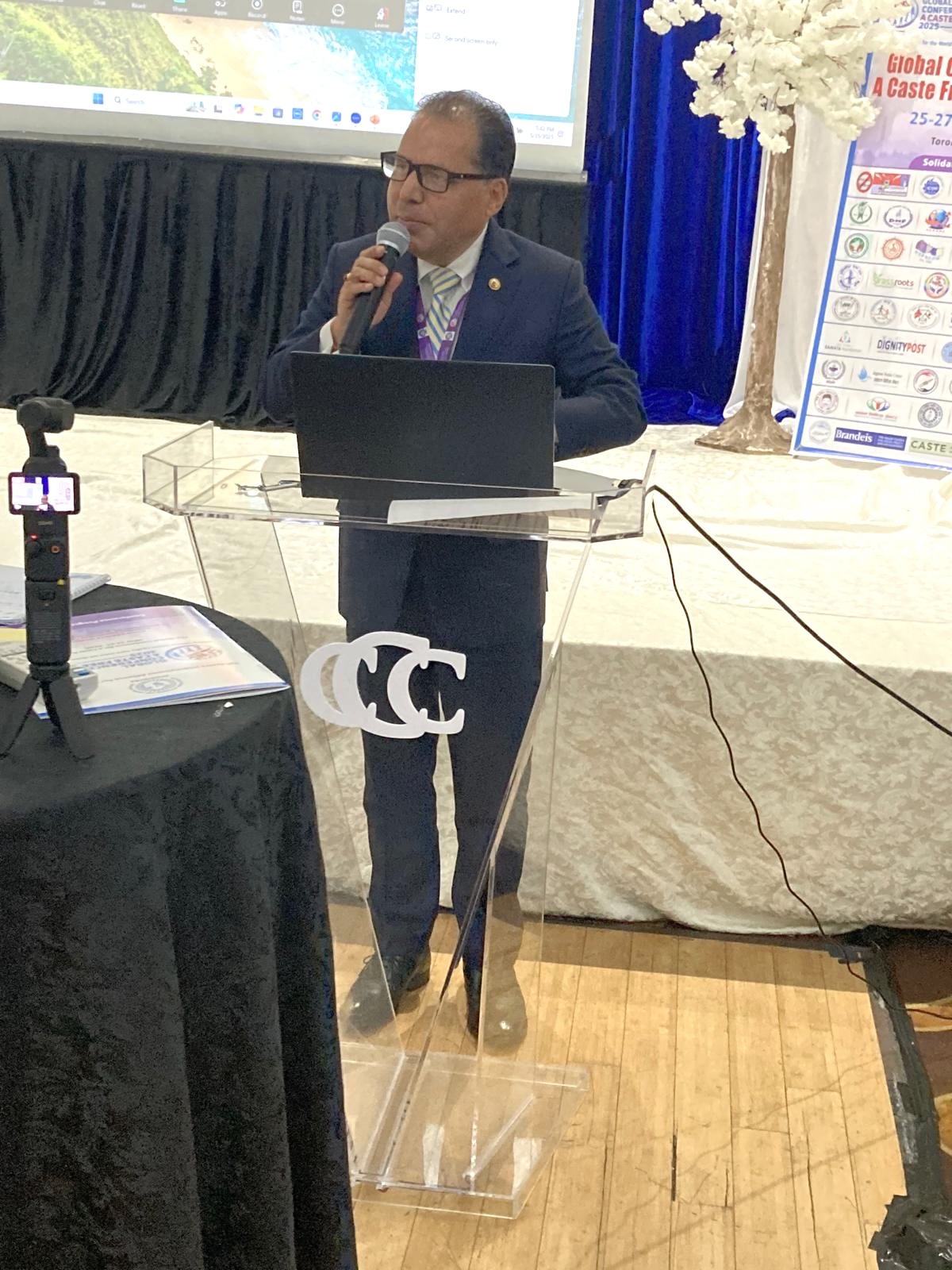
Ambassador Paudyal noted that although the caste system was historically perceived as a social and occupational framework, it gradually became an instrument of exclusion and inequity. For centuries, Dalits faced profound social marginalisation, economic deprivation, and systemic barriers that hindered their advancement. Yet, Nepal’s journey towards equality and justice, he said, tells a story of resilience and transformation.
A seasoned diplomat, Ambassador Paudyal stressed that Nepal has made significant strides in recent years towards eradicating caste-based discrimination.
“Our Constitution unequivocally recognises caste-based discrimination as a grave violation of human rights. Article 24 explicitly criminalises such acts and enshrines principles of equality and inclusion as cornerstones of our republic. This constitutional foundation is further strengthened by comprehensive parliamentary legislation aimed at delivering justice to victims and ensuring accountability for perpetrators,” he stated.
Nepal’s commitment extends beyond the realm of legislation. Government initiatives centred on empowering marginalised communities have gained momentum. Affirmative action measures—such as reserved quotas in education, public sector employment, political representation, and targeted social security—have created avenues for historically disadvantaged groups to advocate for their rights and contribute to societal growth, noted Ambassador Paudyal.
These provisions not only enable individuals but also empower communities to emerge as leaders in championing their own dignity. Grassroots movements have played a critical role in complementing these efforts. Partnerships with civil society organisations have led to impactful programmes targeting education, economic upliftment, and public awareness, he added.
These initiatives aim to dismantle cycles of poverty and marginalisation while fostering dignity and self-reliance among affected populations. Through such coordinated efforts, Nepal is advancing towards a future where caste-based hierarchies no longer define humanity’s worth, he added.
Ambassador Paudyal concluded by noting that caste-based discrimination transcends national boundaries and manifests in various forms worldwide. Nepal supports the solidarity of scholars, activists, and policymakers in their quest to create a caste-free world, he added.
The three-day conference (25–27 May 2025), being held in Brampton, Toronto, will conclude on Tuesday with the adoption of the Toronto Declaration, according to the organisers.
सम्बन्धित सामग्रीहरू
हाम्रो सिफारिस
- १
- २
- ३
- ४
- ५






